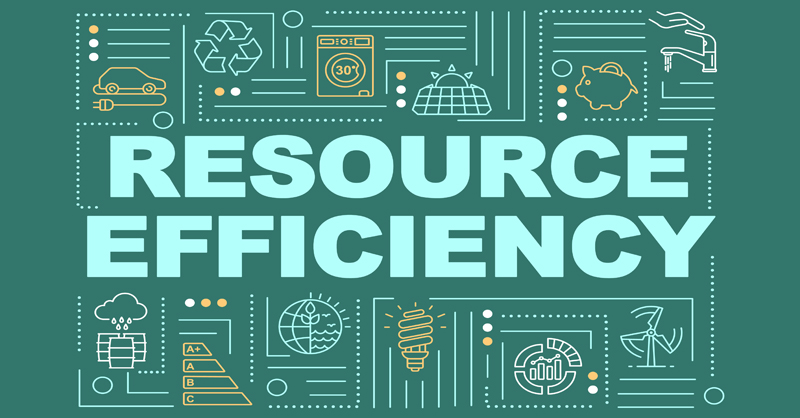In 2022 we launched our biggest funding call yet, offering a total of £400,000 of research funding to split among proposals from the InterAct community.
We were delighted with the response we received, competition was very strong and many teams submitted excellent project proposals. Unfortunately, though we wish we could fund all of them, we could only resource some of these. The nine proposals we elected to finance are:
Battery Passports: Readiness of the UK Battery Manufacturing Sector, Ecosystem Opportunities & Implications for UK Industrial Policy

Principal Investigator:
Melanie King – Loughborough University
Co-Investigators:
Paul Timms – Loughborough University
Project Outline:
“We both come from a Systems Engineering background and we wanted to look at a pressing issue in the form of battery manufacture from a broader ecosystem standpoint.
“A major element of the push for a net-zero world is the adoption of sustainable energy solutions, particularly for things like electric vehicles. Battery technology is a key component of this and it needs to be done right, such that the development of early solutions doesn’t preclude future opportunities and capabilities.
“We want to find out how ready UK manufacturers are to adopt product passport systems and technology into their business models. As a major trading partner, it is important businesses are aware of, and able to achieve standardisation with EU requirements to ensure they can continue to export products.
“Digital product passports are a really interesting technology that can provide increased efficiency, new business models and servitisation opportunities. They enable proactive maintenance, improved customer service and the possibility of greater circularity in business models which offers us exciting ways to achieve impact.”
The potential of coworking spaces to contribute to geographically distributed manufacturing activity and regional levelling up in the UK

Principal Investigator:
Felicia Fai – University of Bath
Co-Investigators:
Mariachiara Barzotto – University of Bath
Phil Tomlinson – University of Bath
Project Outline:
“This project came about as a result of our team’s shared interest in regional development and particularly the levelling up agenda within the UK.
“The development of co-working spaces was already underway before the onset of Covid, but the impact of the pandemic on remote working practices has accelerated this shift. There has been recognition that co-working spaces offer some separation between home and work for those practicing remote work and offer opportunities for social connection and networking. We wanted to further explore this trend, especially light of their growth in suburban areas as people moved out of cities in response to the pandemic.
“Traditionally remote working has been seen by many in the manufacturing sector as impractical given the requirements of physical production, but there are many back office, support, and engineering functions that could be facilitated through co-working spaces. We also plan to examine the impact of ‘maker spaces’ which offer flexible use machinery suitable for early stage testing, fabrication and training to allow more agile manufacturing.”
Exploring remanufacturing practices and business models in the Aerospace Industry: insights from SMEs

Principal Investigator:
Michael Rogerson – University of Surrey
Co-Investigators:
Rachael Lamb – University of Nottingham
Eun Sun Godwin – University of Wolverhampton
Project Outline:
“Our project will be examining the circularity of SMEs’ business models in the UK aerospace industry, specifically targeted towards remanufacturing. In practical terms this means examining the actual processes involved in supply chains and factories, the processes involved in reclaiming materials and recreating new products from existing products. Sometimes this means transitioning them into fuel or melting them down for component elements.
“Net-zero targets play a part in this, but the regulatory obligations aren’t pushing these practices as yet. What we want to get across is that business involvement needs to be ahead of likely requirements as a strategic imperative.
“The impact of aerospace industries on climate is a conversation that’s already prominent in the public domain. There is a temptation to see these corporations as distinct from the general public, but they are made up of people who are part of the general public and will likely share these sentiments. We hope that we can highlight the competitive advantage to businesses that being a leader here can offer.”
EVBatteries4Planet – Developing smart capabilities for sustainable and ethical EV battery supply chains

Principal Investigator:
Luciano Batista – Aston University
Co-Investigators:
Jun Du – Aston University
Oleksandr Shepotylo – Aston University
Nestor Lopez – KPMG
Project Outline:
“There are several problems with producing the rare metals for electric vehicle (EV) batteries. Most notably, there is a growing difference in supply and demand levels, as demand rapidly increases, with car manufacturers racing to adhere to emissions regulations. There are also concerns around serious political instability in some major rare metal producing countries and the environmental impacts of large scale mining operations. This is causing a practical and ethical bottleneck in the production process.
“We want to look at the provenance of resources in use and find ways to encourage recycling and reuse of materials to achieve a sustainable supply chain.
“We want to see how digital technologies like blockchain can be used to help address the problems by creating visibility in global supply chains.”
Industrial digital technologies for UK SME exporting manufacturers

Principal Investigator:
Hanh Pham – University of Leeds
Co-Investigators:
Chee Yew Wong – University of Leeds
Richard Hodgett – University of Leeds
Neil Harriman – Oxford Innovation
David McKee – Slingshot Simulations
Project Outline:
“We are delighted to have received this award from InterAct to undertake this project investigating ‘Industrial digital technologies for UK SME exporting manufacturers’. We are aiming to develop a decision-making model for manufacturers’ adoption and utilisation of industrial digital technologies to enhance competitiveness in international markets both as a conceptual model and through web-based applications.
“We anticipate industrial digital technologies will be a game changer in global production networks in the next two decades and UK SME export manufacturers need to prepare to be ahead of the game.
“We hope the outcomes will be used by manufacturers, especially SMEs, as well as digital solution providers, UK policymakers and support agencies to enable an effective transition to the next stage of industrial development.”
Empirical investigation of the role of pairing industrial digital technologies and resource efficiency towards net zero

Principal Investigator:
Taofeeq Ibn-Mohammed – WMG, The University of Warwick
Co-Investigators:
Mehmet Chakkol – WMG, The University of Warwick
Temidayo Akenroye
Aitana Uclés Fuensanta – University of Warwick
Tristan Niesslein – Niesslein Sustainability Partners (NSP) Ltd
Project Outline:
“Our proposal is about investigating the challenges and barriers to adopting and implementing digital technologies to facilitate resource and energy efficiency.
“A lot of previous work has focused on how technology can drive supply and demand side efficiencies. Instead, we want to find out what barriers industry is facing and how these can be mitigated to improve technology uptake. We’re planning to interview key stakeholders from the sector to see if their thoughts mesh with our own findings and get practical, hands-on insight.
“We want to analyse the interconnected nature of these challenges to determine which are the most critical, and if certain key challenge resolutions will have a wider, cascading success across supply chains. This means looking across the board at manufacturing sub-sectors to see if the challenges faced by individual producers are generally applicable to different businesses.”
RESTRAIN: Socio-cultuRal bEhaviour of end-uSers To specific cybeR-threAts In maNufacturing

Principal Investigator:
Muttukrishnan Rajarajan – City University of London
Co-Investigators:
Rajkumar Roy – City University of London
Katy Tapper – City University of London
Paul Hide – Amdea
Jim Fairbairn – Megger Ltd.
Project Outline:
“Cybersecurity in the manufacturing environment is a growing area of interest and concern. With the increased adoption of digital technologies, manufacturing is becoming a major target for cyber attacks. One of the biggest vulnerabilities in this regard is human behaviour and attitudes towards cybersecurity.
“Since the pandemic, manufacturing has gone through a huge digital change which has opened up new avenues of attack. What we want to know is, how do we manage behavioural change to ensure cybersecurity improvements and use psychological models to plan new ways to adapt to these changes.
“We will be working with the cyber-resilience centres across the country to establish how the findings of this research can impact the wider manufacturing sector across the UK.”
Standardization and new technology adoption in the housing supply chain: Lessons from the 1930s

Principal Investigator:
Christopher Spencer – Loughborough University
Co-Investigators:
Paul Temple – Consultant (University of Surrey)
Project Outline:
“Our contribution to InterAct lies in exploring how Britain’s historical experience of technical standards adoption in the 1930s – particularly those associated with new and emerging technologies – has important lessons for the current and future adoption of industrial digital technologies (IDT).
“We will evaluate the strategic role of the British Standards Institution (BSI) on the housing supply chain during the 1930s. This exploration will be contrasted with the situation today, where the housing supply chain is complex, and for which there is a clear need for increased forward-looking planning and coordination regarding the increasing adoption of IDT and associated IDT standards.
“The project will result in a significant amount of new knowledge in academic, industry and policymaking circles that is relevant to IDT adoption, based on significant historical evidence and contextualisation.”
Business Model Innovation and Digital Servitization in UK Manufacturing Small and Medium Sized Enterprises.

Principal Investigator:
Dimitrios Dousios – University of East Anglia
Co-Investigators:
Antonios Karatzas – University of East Anglia
Project Outline:
“Servitization is the provision of products and services in an integrated bundle that can create and sustain value. One issue is that almost all the of existing research in this area has been focused on large firms, with very little focus on SMEs. Meta analysis and systematic reviews have confirmed there is a gap in research done to date.
“Why is this important? SMEs are facing an increasingly competitive, unstable environment with major negative impacts spilling out from energy crises, conflict, and the pandemic. We’re offering our assistance and research insights to help them become more stable and complete by adding service elements to their package offering.
“We’re looking to create infographics, video tutorials, and a roadmap for SMEs to understand their competitive position and to learn how they can use these advanced business models from larger firms to improve competitiveness.
“99.3% of manufacturing firms in the UK are SME’s, but at the moment we don’t understand the boundary conditions that can vary wildly between firms in different stages of their development. By introducing a servitization toolkit, we are providing a hands-on kit of actionable insights that can set them on the road to improvement.”

